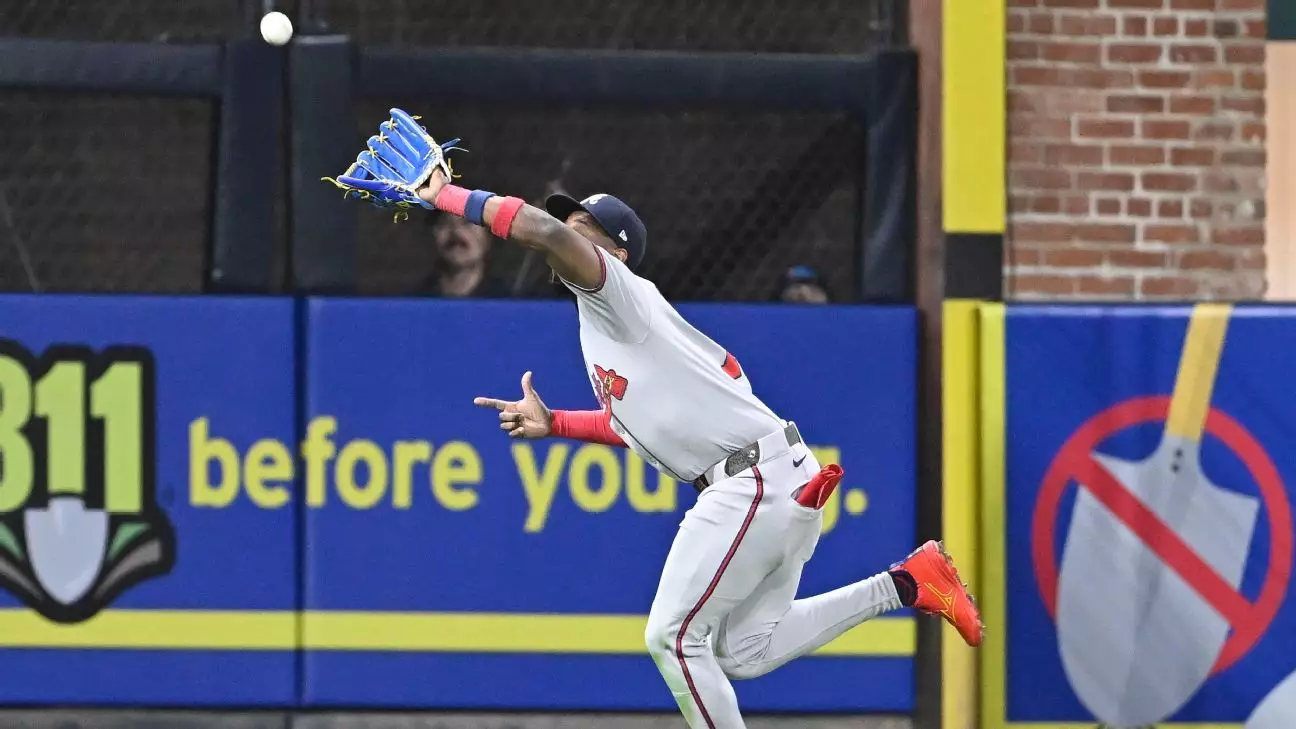In the world of sports, few things are as devastating as a player’s public disgrace, especially when it involves performance-enhancing drugs. Jurickson Profar, once the celebrated outfielder of the Atlanta Braves, finds himself at the epicenter of a scandal that not only threatens his career but also casts a long shadow over the franchise he represents. With Major League Baseball (MLB) enforcing an 80-game suspension due to Profar’s positive test for chorionic gonadotropin, a substance known to boost testosterone, the Braves face an uncertain future, and Profar faces the harsh reality of a career tarnished.
This isn’t merely an issue of morality or personal failings; it digs deeper into the very ethos of sportsmanship and fair play. Fans look up to players not just for their athletic prowess, but for their character, their integrity. Profar’s admission of devastation underlines the very human reality of professional sports; athletes are multifaceted individuals who feel the weight of their actions, particularly when those actions betray the trust of those who support them.
The League’s Stance: Stricter Enforcement or Outdated Ideology?
The MLB has been adamant about its zero-tolerance policy towards doping, a stance that is commendable. However, one has to wonder if the league’s methods are outdated in their execution. Profar’s comments regarding being tested eight times in one year and not having tested positive until this incident raises questions about the efficacy and reliability of testing protocols. Are players unfairly punished under systems that don’t adequately catch subtler forms of doping, or do these protocols fail to evolve as science does?
These questions could spark dialogue about whether the league is committed to helping players understand and navigate the complexities around substance use or if it’s primarily focused on punitive measures that might not address the root of the issue. Profar’s narrative presents a portrait of an athlete desperately striving for performance, perhaps feeling pressured by the competitive nature of the sport. Instead of fostering an environment of understanding, athletes often find themselves walking a tightrope fraught with the risk of a devastating fall, especially when dealing with regulations that appear more punitive than supportive.
Franchise Fallout: Atlanta Braves in Crisis
From the Braves’ perspective, Profar’s suspension couldn’t come at a worse time. After a crushing defeat against the Padres, during which they failed to score in a staggering 22 consecutive innings, his absence now threatens to further destabilize a team already reeling from injuries. The Braves signed Profar to a lucrative contract with the hope that he would be a cornerstone in their lineup—a player who could turn the tide in pivotal games and become a fan favorite. Instead, they are left scrambling for answers, having to rely on players who may not be ready for such high stakes.
One must consider the broader implications of this event as it reverberates through the team dynamics. How do teammates respond to a situation rife with disappointment and betrayal? Profar’s admission of love for the game and his apologies indicate a camaraderie that is severely tested by this setback. While fans are quick to react with disappointment and anger, the psychological toll it takes on the team cannot be underestimated. Leadership must rise to the occasion, navigating not only the technical void left by Profar but also the emotional landscape of a shaken locker room.
Searching for Redemption: The Path Forward
In the aftermath of such a scandal, the question of redemption looms large over Profar. The road to recovery is often fraught with obstacles, not just professionally but personally. Those who fall from grace often find themselves under incessant scrutiny, and Profar is no exception. He needs to demonstrate not just accountability, but an actionable commitment towards earning back the trust of his teammates and fans.
This situation could serve as a pivotal learning opportunity—not just for Profar, but for the league and its players at large. Opening dialogues focused on mental health, responsible competition, and the long-term effects of substance abuse could facilitate a cultural shift. Let’s hope this moment of crisis is not merely about punishment but emerges as an opportunity for growth and transformation within a sport that has much to lose. Profar’s journey may be just beginning, but the potential for recovery hinges on the right choices made during this critical time.


Leave a Reply